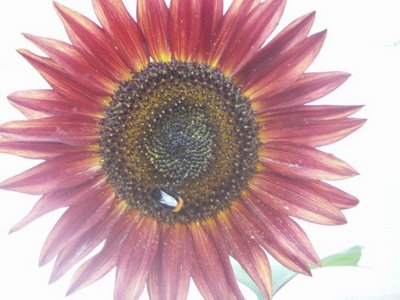moving in with brad (part 1)

I first heard Brad Mehldau at a solo concert in Salamanca, Spain, in early 2000. I went because I'd vaguely heard about him being one of the best young jazz pianists. The next day, I bought Art of the Trio Vol. 4. I initially had a tough time with that album, as I hadn't been listening to jazz for very long. What was easy, though, was the last track, Radiohead's "Exit Music (For A Film)," even though I'd never heard Radiohead beyond "Creep" and had little idea who they were (cf. Alex Ross's Mehldau-Radiohead tidbit). I was also intrigued by the several minutes of looped post-concert audience chatter that ended the CD. In fact, I still don't know why it's looped (a Radiohead-ish gesture?), but it's kind of cool.
By the time Anything Goes came out, I was kind of sick of Mehldau and I got the feeling many others were, too. I didn't (and still don't) have all of his albums, but I had enough to get a "ho hum, more of the same" feeling from listening to MP3s of AG. I still continued to go see him whenever possible: the trio in Brussels's Palais des Beaux-Arts and Antwerpen's beautiful Bourla theater, solo at Flagey. The solo concert (and label shift from Warner Jazz to Nonesuch) piqued my interest enough for me to get Live In Tokyo. But it was the excellent Day Is Done and the replacement of Jorge Rossy by Jeff Ballard that really made Mehldau relevant again to me. The trio concert (perhaps the Citizen Jazz article I'm proudest of) I saw in February of this year in Turnhout was the best overall.
During that concert, I was constantly astounded by how deeply personal and unusual the music was and impressed that Mehldau seemed not to fall back on anything easy or on his own clichés. Even his body language displayed very little of the tortured artist twistiness of old. When playing solo, he tends to erect huge structures that are technically daunting, but also distance him from the listener. In Turnhout, virtuosity was brought to the fore only once, on Coltrane's "Countdown," which is kind of logical, considering the original recording's torrential saxophone-drums duet. Otherwise, the music was profound, often singing, exploratory and weirdly beautiful rather than pretty. Counter-intuitively, his playing was more intimate with others around him.
Mehldau's successive Radiohead covers partially encapsulate his evolution: "Exit Music (For A Film)" builds towards cathartic melodic climaxes, "Paranoid Android" is gigantic to the point of excess and "Knives Out" is more ambiguous and ungraspable. In Turnhout, Ballard played a tambourine with his foot, fudging the tempo and emphasising the mystery. This brings us to House On Hill.
|